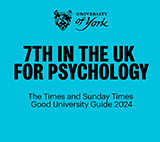
Departmental internal seminars
Presentations by members of staff and postgraduate students on their ongoing research.
If no events are listed here, there are no events this term.
Tue
24
Sep
Tue
1
Oct
Tue
15
Oct
Tue
22
Oct
Tue
5
Nov
Tue
12
Nov
Tue
19
Nov
Tue
7
Jan
Tue
14
Jan
Tue
4
Mar
Tue
29
Apr
Tue
6
May
Tue
13
May
Tue
20
May
Tue
27
May
Archive of previous events
Tue
28
May
Tue
21
May
Tue
14
May
Tue
30
Apr
Tue
9
Apr
Tue
5
Dec
Tue
26
Sep
Tue
20
Jun
Tue
30
May
Tue
9
May
Tue
2
May
Tue
24
Jan
Tue
14
Jun
Tue
31
May
Tue
17
May
Tue
3
May
Tue
8
Feb
Tue
22
Jun
Tue
15
Jun
Tue
8
Jun
Tue
1
Jun
Tue
25
May
Seminars by type
Research centre and group seminars
Psychsoc talks
